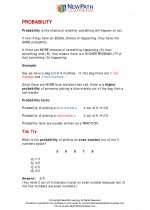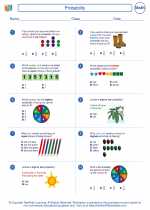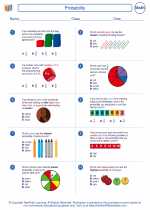Distributive Property
The distributive property is a fundamental concept in mathematics that helps in simplifying expressions and solving equations. It is used to distribute a value across the terms inside parentheses. The general form of the distributive property is:
a * (b + c) = (a * b) + (a * c)
This means that when a value is multiplied by the sum of two other values inside the parentheses, it can be distributed or split up and multiplied with each term inside the parentheses individually.
Example:
Let's consider the expression 3 * (2 + 4). Using the distributive property, we can simplify it as:
3 * (2 + 4) = (3 * 2) + (3 * 4) = 6 + 12 = 18
It's important to note that the distributive property also works in reverse. That is, we can also use it to factor out a common term from multiple terms in an expression.
Example:
Consider the expression 5x + 10x. We can factor out the common term '5' using the distributive property as:
5x + 10x = 5(x) + 5(2x) = 5(x + 2x) = 5(3x) = 15x
Study Guide:
- Understand the concept of multiplication and addition.
- Learn to recognize expressions where the distributive property can be applied.
- Practice applying the distributive property to simplify expressions and solve equations.
- Understand how to factor out common terms using the distributive property.
- Practice with various examples to strengthen your understanding of the concept.
By mastering the distributive property, you will be able to simplify expressions and equations more efficiently, which is a crucial skill in algebra and higher-level mathematics.
.◂Math Worksheets and Study Guides Fourth Grade. Probability

 Worksheet/Answer key
Worksheet/Answer key
 Worksheet/Answer key
Worksheet/Answer key
 Worksheet/Answer key
Worksheet/Answer key
